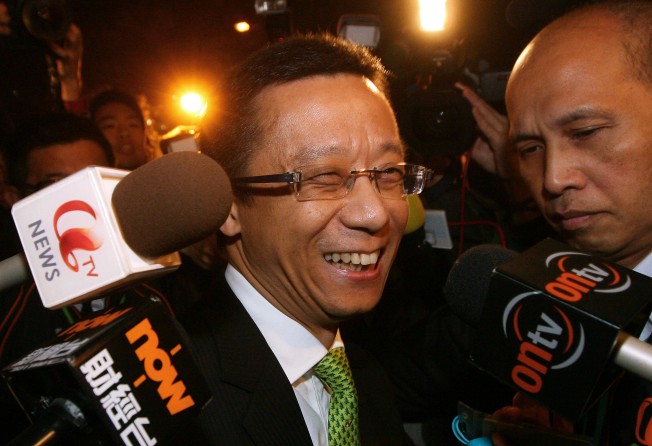Stock Watch: City Telecom

Business transformations are highly risky and can go horribly wrong. One home-grown example is Boto, which was one of the world's largest artificial Christmas tree makers. In 2002 it sold this profitable business to Carlyle, a private equity outfit, to invest in an animation firm, in which it had limited experience.
The company was renamed Imagi and fell into a multiyear run of losses. A consortium led by Francis Leung, ex-chairman of Citigroup Asia, rescued the firm in 2011 when it almost ran out of cash.
A similarly drastic business transformation occurred in March, when City Telecom sold its cash-cow telecoms business to CVC, another private equity player, for about HK$5 billion to focus on multimedia.
The telecoms business connects about two million homes and 1,700 commercial buildings in Hong Kong with high speed fibre-optic links providing telephone and internet services. The enterprise accounted for almost all of City Telecom's revenue and profits.
In contrast, City Telecom's multimedia business, which the company launched in 2003 as part of its internet division, generated less than HK$450,000 of revenue for the six months ended February 2012.
But City Telecom has big hopes for this unit. It applied for a free-to-air television licence in Hong Kong in December 2009, of which issuance is pending. City Telecom said in the shareholder circular issued in connection with the sale of the telecoms business that it plans to start with 12 channels, mixing its own programmes with acquired content - it plans to produce 650 hours of drama, and 520 hours of news and entertainment in 2013.
This will be expensive. City Telecom plans to spend HK$800 million to build a 400,000 sq ft multimedia centre in Tseung Kwan O and sign up production crew and artists. The company estimates the venture will need at least HK$2.5 billion of funding over the next four years, according to the circular.
Following the sale of the telecoms business and accounting for a large dividend paid to shareholders in June, it has more than HK$3 billion in cash on hand.
City Telecom chairman and controlling shareholder Ricky Wong Wai-kay has made no secret of his interest in the media business. In 2008, Wong left City Telecom - a large, successful enterprise he built from scratch - to work for ATV, one of Hong Kong's two free-to-air television stations that is perennially loss-making and an also-ran to TVB.
Wong was up for the challenge of turning around ATV, and wanted to make its news programming more independent of pro-Beijing influences. He only lasted 12 event-filled days during which he clashed with then chairman Linus Cheung Wing-lam and allegedly asked one of the participants in the Miss Asia pageant (broadcast on ATV) whether she had breast implants. The episode ended as bizarrely as it began, with Cheung announcing that Wong had resigned, and with Wong denying any such thing. But Wong left soon after, making a statement that interested parties were blocking reform of the broadcaster.
Now Wong is back in the media business with a firm he controls. The multibillion dollar question is this: will City Telecom's huge bet pay off?
City Telecom is staking its future on a business in which it does not have a significant track record. Wong is a skilled entrepreneur but the media business requires radically different skill sets.
City Telecom will be going up against a well-entrenched incumbent in TVB, which produces well-received Cantonese dramas that are a staple of prime-time viewing in Hong Kong.
TVB's free Chinese Jade channel and English Pearl channel have an 87 per cent and 80 per cent audience share during peak viewing hours. Its self-produced shows are popular overseas: it generated about one quarter of its total revenue in 2011 by licensing them in more than 40 countries and cities.
In 2011, TVB reported about HK$2.9 billion of net television advertising revenue in Hong Kong and a profit of HK$1.8 billion.
The experience of ATV competing against TVB is hardly encouraging. ATV sees frequent ownership and management changes, and each new owner seems more reluctant to pump in the cash to make the firm competitive. To add to the pressures, Hong Kong's two other pay television operators, i-Cable and PCCW, also applied for free-to-air television licences.
The question remains whether the Hong Kong market is large enough to accommodate five profit-making players.
In Hong Kong, PCCW's Now TV's operating cash flows only turned positive in 2009, almost six years after it was launched. Rival i-Cable has been in the red since 2008.
City Telecom needs the firepower for a long-term battle. While its HK$3 billion cash reserve is more than adequate for its immediate needs, it does not have other assets to generate cash flows to support the business. Moreover, the firm could find it challenging to raise money from investors, if it runs out of funds.
Its rivals, meanwhile, have deep pockets. TVB and PCCW both hold net cash of more than HK$2 billion. I-Cable, meanwhile, is backed by Wharf, with a market capitalisation of more than HK$150 billion.
Shareholders have noted City Telecom's challenges. The stock trades at about a 40 per cent discount to its cash holdings. In other words, shareholders would be much better off if the company halted all its operations today and simply distributed its cash to them.
The market is indicating that City Telecom is in over its head. It's up to Wong to prove them all wrong.